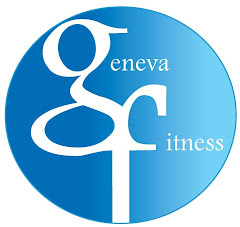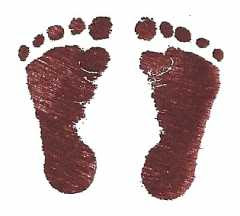 as ever been a vegetarian or is one today, you will probably have been told a thousand times that you can't possibly be getting enough protein in your diet!! I lived with this for many years and yet still managed to be quite healthy and muscular! We all know that meat and fish and other animal sources are high in protein and full of the amino acids that we require for good muscle repair and growth. What is less known is that protein can also be obtained from vegetables, grains and legumes and that if you eat enough of these foods , you will be meeting your daily requirements without eating any meat.
as ever been a vegetarian or is one today, you will probably have been told a thousand times that you can't possibly be getting enough protein in your diet!! I lived with this for many years and yet still managed to be quite healthy and muscular! We all know that meat and fish and other animal sources are high in protein and full of the amino acids that we require for good muscle repair and growth. What is less known is that protein can also be obtained from vegetables, grains and legumes and that if you eat enough of these foods , you will be meeting your daily requirements without eating any meat.If your choice is to avoid meat, then you will probably be filling up on vegetables, fruits, legumes, grains, nuts and seeds and will therefore be meeting your daily nutritional requirements. You will however, have to take more care in making sure that your meals are well balanced and that you are eating sufficient food in order to consume enough protein. When you are eating a good balance of these un-processed foods, your carbohydrate, protein and fat ratios will be optimal. If you are trying to build muscle while on a vegetarian regime, it is a good idea to know which plant based foods come in the higher protein category and which ones are lower. Remember that it is important to include a wide range of fruits and vegetables as well, because you also need to consume adequate amounts of micronutrients and vitamins. The alkaline effect of fruits and vegetables will also balance out the acidity that the grains, legumes and nuts provide.
There is a tendency to over consume dairy products and processed soya products when following a vegetarian lifestyle, and this can lead to a high intake of fats, salt and estrogens. Cheese is very versatile and is probably the quickest go-to food when cooking and preparing non-meat dishes but it is also very high in fat and salt. I have to say that I love cheese, but I now only eat goats and buffalo milk cheeses which I find easier to digest and which tend to be lower in fat. As you may have noticed in previous blogs, I am not a fan of soya. Soya has been found to upset the balance and function of our thyroid and is present in nearly all processed foods and drinks. Fermented soya (ie Tofu,Tempeh) is the only type of soya that we should eat and even that should be restricted to a few small portions a day. After much research on the topic I have have become an anti-soya campaigner, but it is up to you to make your own choices and therefore I recommend that you do your own research and decide for yourself what the risks are. I used to believe that if something was on our supermarket shelf and being sold to us as food, it must surely be safe! Knowledge is everything, and when it comes to our food and how we nourish our bodies, it is more important today than ever before, to know what is in our food and where it is coming from. http://www.naturalnews.com/022630.html
Anyway, to go back to the subject of protein, here follows an idea of the percentage of protein contained in plant based foods.
High Protein :
Broccoli, spinach,, squash, asparagus, Hemp seeds, Pumpkin seeds, lentils,Tofu, peas, Tempeh, Kidney beans, pea protein powder, rice protein powder, hemp bread and sprouted grain bread.
Lower Protein:
Cucumber, celery, quinoa, oats, almonds, walnuts, flaxseeds, peanuts, pistachios, chick peas.
As you can see from this list, it is a good idea to include legumes in most of your daily meals. You can make salads, stews, bean burgers, curries, hummus and various other dips and delicious concoctions with these ingredients. I do find that cooking a vegetarian meal can be a bit more time consuming and you will also have to become quite knowledgable about the protein content of the foods that you are preparing. It is quite simple to cook a piece of meat or fish and just add a pile of steamed vegetables, but there are so many wonderful dishes to be made with plants that I feel you will have a lot of fun experimenting. One of my favourite "fast food" meals is to throw a tin of chickpeas in a saucepan with a tin of chopped tomatoes, add some crushed garlic and some coconut milk,a tsp or two of curry powder or thai curry paste....bring to the boil and allow to simmer while you have a shower or clear up the mess the kids have left for you or cuddle the dog! We eat it hot or cold along with a piece of bread or instant couscous, et voila, dinner in an instant! Tofu and Tempeh are also great sources of protein and are versatile enough to be used in many different recipes from soups and stir fries to burgers and salads.
Please be aware that Vegetarian diets can leave you deficient in some B vitamins and amino acids which could result in anaemia so it is a good idea to have a blood test if you are feeling fatigued or dizzy. Maintaining a fitness routine while trying to lose weight and maintain a good nutritional balance can be quite challenging. Simply do your best to balance your meals and if your protein must come from plant based sources, then make sure that you are eating enough to meet your daily needs.
In health,
Tamara








No comments:
Post a Comment